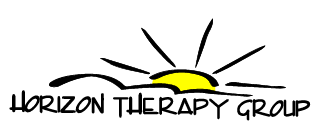Signs and Symptoms
Some signs of child abuse and neglect are visible such as cuts, welts, or defined burns. A child may talk vaguely about how they got hurt. A child suffering from neglect may wear dirty, ill-fitting, ragged or unsuitable clothing. They may be found going through trash for something to eat or stealing food, they may have frequent absences, chronic tiredness, and untreated illnesses. Sexual abuse signs may include inappropriate interest in or knowledge of sexual acts, seductive behavior, or fear of a particular person. It is important to be aware of the behavioral clues of online sexual abuse such as your child spending large amounts of time online, finding pornography on the computer your child uses, your child being secretive on the computer, or your child using others’ accounts. Emotional abuse may include verbal abuse, extreme punishment, and/or withholding affection. Other signs you may witness are apathy, hostility, and depression.
Signs and symptoms of dependent adult abuse may include extreme hunger and dehydration, untreated medical problems, desertion, being very disheveled, physical and/or chemical restraints, unsuitable clothing for the climate, unsanitary living conditions, hazardous living conditions, and physical signs of abuse. If sexually abused they may have bruises in the genital area or breasts, unexplained bleeding, venereal diseases, and torn or bloody undergarments.
Financial exploitation may include sudden changes in their financial situation, isolation from others, numerous bank withdrawals, and missing objects from their home. The caregiver may restrict a person’s contact with the outside world. The dependent adult may also report being mistreated, assaulted, or exploited; however, this often does not occur for various reasons such as fear or confusion.
Causes
Numerous factors may cause a caregiver to abuse a child or dependent adult including stress of caring for this person, lack of nurturing qualities, personal problems, drug or alcohol abuse, and being isolated from the community. Problems in managing anger, immaturity, a personal history of being abused, mental health or physical health problems may also be causes.
Screening and Diagnosis
People need to be aware of the signs and symptoms of child and dependent adult abuse and get help to stop the abuse. If you know of abuse or even suspect it, please report it by calling. The Iowa statewide child or dependent adult abuse hotline: 1-800-362-2178. If you feel someone is in imminent danger, please call 911. Calls may be kept anonymous.
Our therapists can help men and women who have been abused as a children or adults. In the initial and consequent sessions a therapist will gather history of past or current abuse so that treatment can focus on healing these wounds.
Treatment
Mental health treatment deals with the trauma of the abuse whether recent or in the past. Some trauma may have led to Post-traumatic Stress Disorder which is often effectively treated by EMDR. Any symptoms of abuse including depression, anxiety, and relationship issues are addressed as part of your treatment. It is important to remember you do not have to live with unresolved issues of abuse.
Coping Skills
In therapy you will learn numerous skills for dealing with abuse. Treatment is tailored to each person’s individual needs. Coping skills may include:
- learning how to assert yourself when in a powerless position
- identify and express feelings about the abuse
- gain support from others
- learn how to decrease anxiety and depression
- self-care skills
- self-esteem work
- stress management
Mental health therapy helps a person learn skills while receiving guidance and support on this journey of healing. Mental health therapy can make a tremendous difference in the life of a child, dependent adult or anyone who has experienced abuse.

